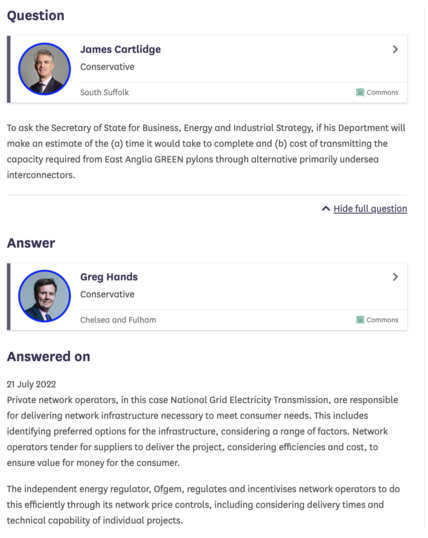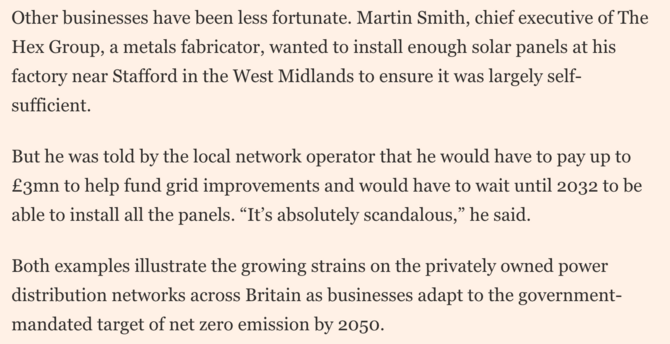Anton Howes on how the history of transport infrastructure
"reveals to us a sort of hierarchy of applications when it comes to promoting economic growth: above all access to energy, secondarily to markets for other goods, and only then to labour."
Failure to fund and build a railway or canal in the 1820s is why my hometown of #Knaresborough didn't grow and lost its linen industry.
https://www.ageofinvention.xyz/p/age-of-invention-freight-expectations
I guess the modern parallel is our ability to power data centres? See for example what I think is a moratorium on further data centres in Dublin.
(Not sure if there are UK examples of similar?)
If Middlemarch were set today, the railways would be electricity pylons.
Beginning to feel that we need a 21st Century reimagining of Middlemarch on the BBC or something to help us have a better national conversation about the need for pylons carrying offshore generated electricity. Situation feels bad from multiple angles.
Folks in villages getting to say "no" with no admission of the costs of delay to wider society feels very unfair, at least to me.
(Also, quite what is happening to Tories in East Anglia is extremely too.)
https://www.ft.com/content/f216dcfb-6e95-4e01-ab89-b5f6f331c8d2
"Situation feels bad from multiple angles" meaning that authoritarian imposition of pylons would be bad for communities but delays are also likely very costly.
Someone is going to have to make a sacrifice and no-one really mentions this explicitly.
Well, it would seem that Tories who profess to love the countryside have reached the "finding out" stage of their Thatcherism.
(Adding only that the absolute state of what passes for a written answer with this government is shameful. The written question was a reasonable one and deserved a proper answer.)
FT this morning reporting on businesses around the country limited by waits into the 2030s for power grid updates.
https://www.ft.com/content/e9588967-ea5e-4b74-b51d-9a42a16567da
Sadly this didn't touch on Ofgem's connections amnesty which I don't fully understand but I think is designed to allow delayed but queued projects to drop their place for more complete projects that would've otherwise been waiting connection.
Meanwhile, in East Anglia, connections to the water mains are now being refused for heavy water users in Suffolk, i.e. farming.
One thing I don't understand is what kind of state we'd really want water harvesting and saving to be in on these sites.
New briefing from Common Wealth on the electricity grid. Answers my Q upthread about Ofgem's connections amnesty and more.
> renewable projects now face up to 13 years to connect to the grid from the planning stages, with 600 renewable and battery storage projects with a combined capacity of 176GW in the queue to connect in England and Wales alone, compared with just 64GW of connected capacity in these technologies


